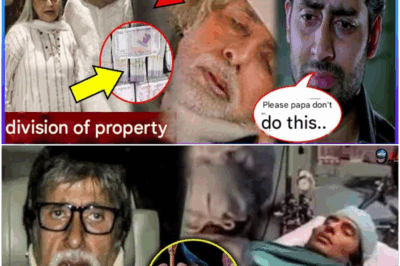Breaking: Ex-Karnataka DGP Om Prakash Murdered At Home | Wife Detained As Key Suspect
.
.
.
play video:
Ex-Karnataka DGP Om Prakash Murdered at Home: Wife Detained as Prime Suspect
By Special Correspondent | Bengaluru, India
Introduction
In a shocking incident that has sent ripples across the Indian law enforcement community, Om Prakash, the former Director General of Police (DGP) of Karnataka, was found murdered in his Bengaluru residence. The 1981-batch IPS officer, who had once held some of the highest offices in Karnataka Police, was discovered dead under gruesome circumstances, his body lying in a pool of blood. As the investigation unfolds, early evidence and eyewitness accounts point to a tragic tale of domestic discord, with his wife, Pallavi, emerging as the key suspect in the case.
A Grisly Discovery
The events leading up to the discovery of Om Prakash’s body began with a series of frantic phone calls and a video call that has become a critical piece of evidence. According to police sources, moments after the murder, Pallavi, Om Prakash’s wife, made a video call to the wife of another former DGP, reportedly telling her, “I have killed the monster.” Stunned by the confession, the recipient of the call immediately alerted the police.
Police teams rushed to the scene after Pallavi herself called the authorities to report her husband’s death. Upon arrival, officers were met with resistance; Pallavi initially refused to open the door, heightening suspicions. When police finally gained entry, they were confronted with a grisly scene: Om Prakash’s lifeless body lay on the floor, blood splattered across the room, and a blood-stained knife—the suspected murder weapon—was recovered nearby.
The Investigation: Family Under Scrutiny
As news of the murder broke, police detained Pallavi and her daughter for questioning. Preliminary investigations revealed that Om Prakash had suffered fatal injuries, likely inflicted by a sharp weapon. The volume of blood loss indicated a brutal attack, and forensic teams are working to reconstruct the sequence of events that led to the killing.
Sources close to the family have indicated that Pallavi may have been suffering from mental health issues. Neighbors and relatives told investigators that the couple’s relationship had been strained for some time, with frequent arguments and escalating tensions in recent weeks. Some even recalled that Om Prakash had expressed concerns about his safety to close associates just months before the tragedy.
Motive: Property Dispute and Domestic Discord
While the investigation is ongoing, early findings suggest that a bitter dispute over property may have been the tipping point. Om Prakash, who had been contemplating transferring his assets to his son, reportedly faced opposition from Pallavi. The decision is believed to have sparked a major argument between the couple, culminating in the fatal altercation.
Family friends and retired police officers familiar with the Prakash family described a household under strain. “There had been tension for months. Pallavi’s behavior had become increasingly erratic, and there were frequent fights,” said one retired officer who had served with Om Prakash. “He was worried about his safety and had confided in some of us.”
A Distinguished Career Cut Short
Om Prakash’s death marks a tragic end to a distinguished career in public service. Born in Bihar’s Champaran district, he joined the Indian Police Service in 1981 and went on to serve in various key roles, including as the head of Karnataka’s Fire and Emergency Services and Home Guards. He was appointed as the state’s DGP—the highest-ranking police officer in Karnataka—on March 1, 2015, and retired after a long and respected tenure.
Colleagues remember him as a dedicated officer, known for his integrity and commitment to public safety. “He was a thorough professional, always willing to go the extra mile for his team and the people of Karnataka,” said a senior police official who worked under his leadership. “His loss is a blow to the entire police fraternity.”
The Aftermath: A Family in Crisis
As the investigation continues, attention has turned to the psychological state of Pallavi, who remains in police custody. Reports suggest that she may have been struggling with mental health challenges, though police have yet to confirm this officially. Her daughter, also detained for questioning, is being treated as a witness at this stage.
Mental health experts have weighed in, noting the importance of considering psychological factors in cases of domestic violence and homicide. “It’s crucial to understand the mental state of the accused, especially when there are prior reports of instability or behavioral changes,” said Dr. Anuradha Rao, a Bengaluru-based psychiatrist. “Such incidents are often the result of prolonged stress, unresolved conflicts, and lack of timely intervention.”
Community Reaction: Shock and Sorrow
The news of Om Prakash’s murder has stunned the law enforcement community and the general public alike. Tributes have poured in from former colleagues, political leaders, and citizens, many of whom remember him as a pillar of strength and a role model for aspiring police officers.
Karnataka Chief Minister Siddaramaiah expressed his condolences in a statement: “The untimely and tragic demise of former DGP Om Prakash is a great loss to the state. We stand with his family in this hour of grief and urge a thorough investigation into the circumstances of his death.”
Retired police officers gathered at Om Prakash’s residence to pay their respects, recalling his contributions to the force and his unwavering commitment to justice.
The Broader Picture: Domestic Violence and Mental Health
The murder of such a high-profile figure has reignited conversations about domestic violence, mental health awareness, and the pressures faced by families in positions of power. Experts point out that domestic disputes can escalate rapidly, especially when compounded by mental health issues and lack of support systems.
“Domestic violence does not discriminate by status or profession,” said Dr. Rao. “It is essential that families seek help when conflicts become unmanageable, and that society reduces the stigma associated with mental health treatment.”
The case also highlights the need for better support networks for retired officials, who may face unique challenges as they transition from positions of authority to private life. “Retirement can be a difficult adjustment, and it’s important that we provide resources for both officers and their families,” said a spokesperson for the Karnataka Police Association.
Ongoing Investigation
Bengaluru police have assured the public that all angles are being explored. Forensic teams are analyzing evidence from the crime scene, while detectives are conducting interviews with family members, neighbors, and close associates. The possibility of premeditation, as well as the mental state of the accused, will be central to the investigation.
Authorities have also seized the murder weapon and are awaiting the results of forensic tests. “We are committed to uncovering the truth and ensuring justice is served,” said a senior police official overseeing the case.
A Legacy Remembered
As the investigation continues, Om Prakash’s legacy as a respected officer and leader endures. His death is a sobering reminder of the fragility of life and the hidden struggles that can exist behind closed doors.
The tragedy has also served as a wake-up call for the law enforcement community, highlighting the importance of mental health support, conflict resolution, and vigilance—even among those tasked with upholding the law.
Conclusion
The murder of former Karnataka DGP Om Prakash is a case that has shocked the nation and left many searching for answers. As the investigation unfolds, it is clear that the tragedy is rooted in a complex web of family conflict, mental health struggles, and the pressures of life after public service.
While the legal process will determine the culpability of those involved, the incident stands as a powerful reminder of the need for compassion, support, and awareness in addressing the challenges faced by families in crisis.
As friends, colleagues, and the public mourn the loss of a dedicated officer, the hope remains that lessons learned from this tragedy will lead to greater understanding and prevent similar incidents in the future.
News
Siddharth Malhotra Gets ANGRY & Slapped A Paparazzi for Taking Private Picture of Kiara Advani
Siddharth Malhotra Gets ANGRY & Slapped A Paparazzi for Taking Private Picture of Kiara Advani . . . play video:…
Rekha is diagnosed with cancer, admitted to hospital, Amitabh-Jaya shocked | Fact Check |
Rekha is diagnosed with cancer, admitted to hospital, Amitabh-Jaya shocked | Fact Check | . . . play video: Rekha…
People called Amitabh impotent, angry Indians said they will not forgive him | Public Anger on Amitabh
People called Amitabh impotent, angry Indians said they will not forgive him | Public Anger on Amitabh . . ….
Aaradhya bachchan with daadu amitabh bachchan Jaya bachchan in saari look enjoying Puja at home
Aaradhya bachchan with daadu amitabh bachchan Jaya bachchan in saari look enjoying Puja at home . . . play video:…
Saif Ali Khan revealed about his d#ath, wife Kareena Kapoor was shocked
Saif Ali Khan revealed about his death, wife Kareena Kapoor was shocked . . . play video: Saif Ali Khan’s…
Amitabh Bacchan revealed about his illness, Bachchan family got shocked
Amitabh Bacchan revealed about his illness, Bachchan family got shocked . . . play video: Amitabh Bachchan Opens Up About…
End of content
No more pages to load












